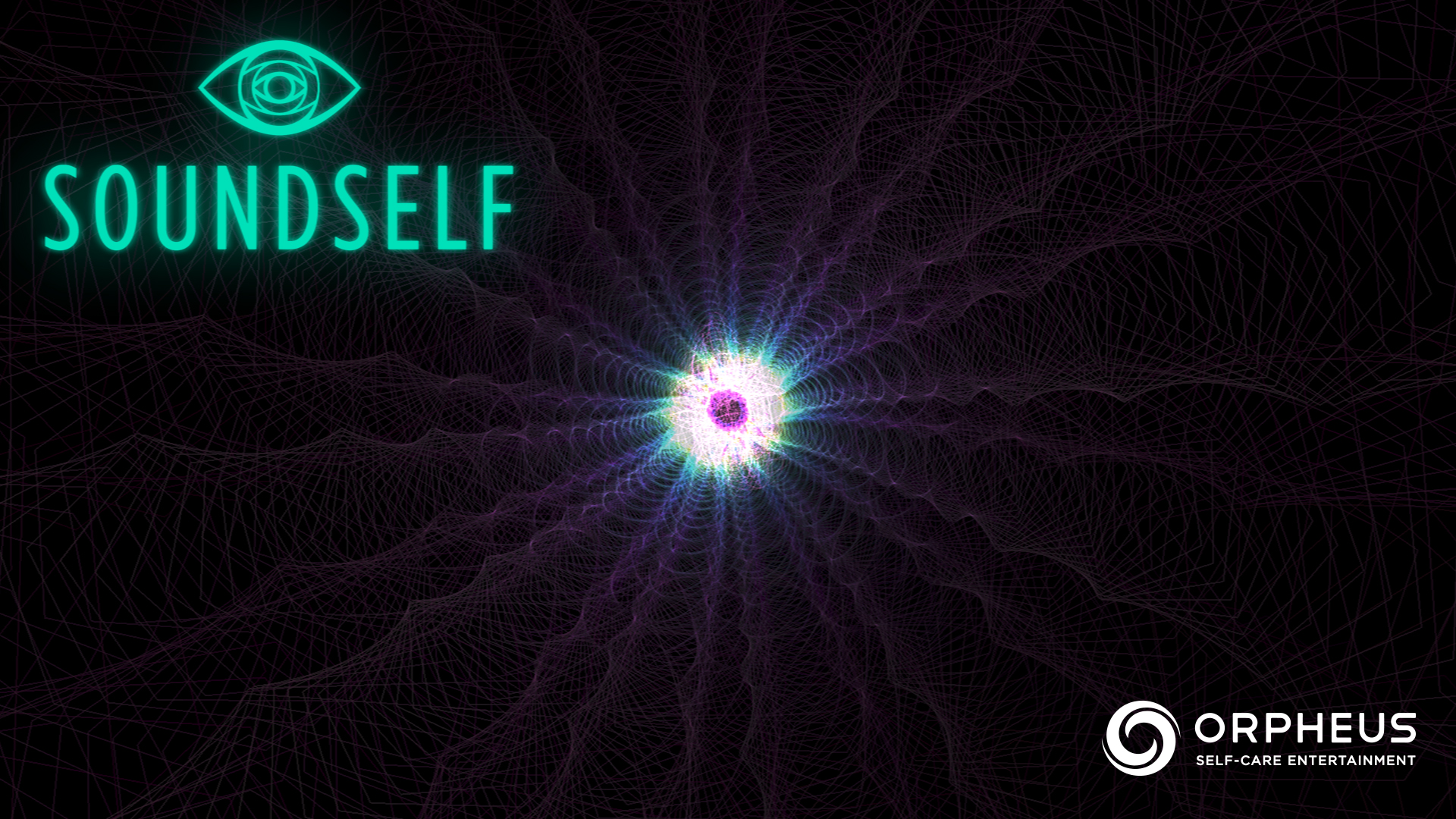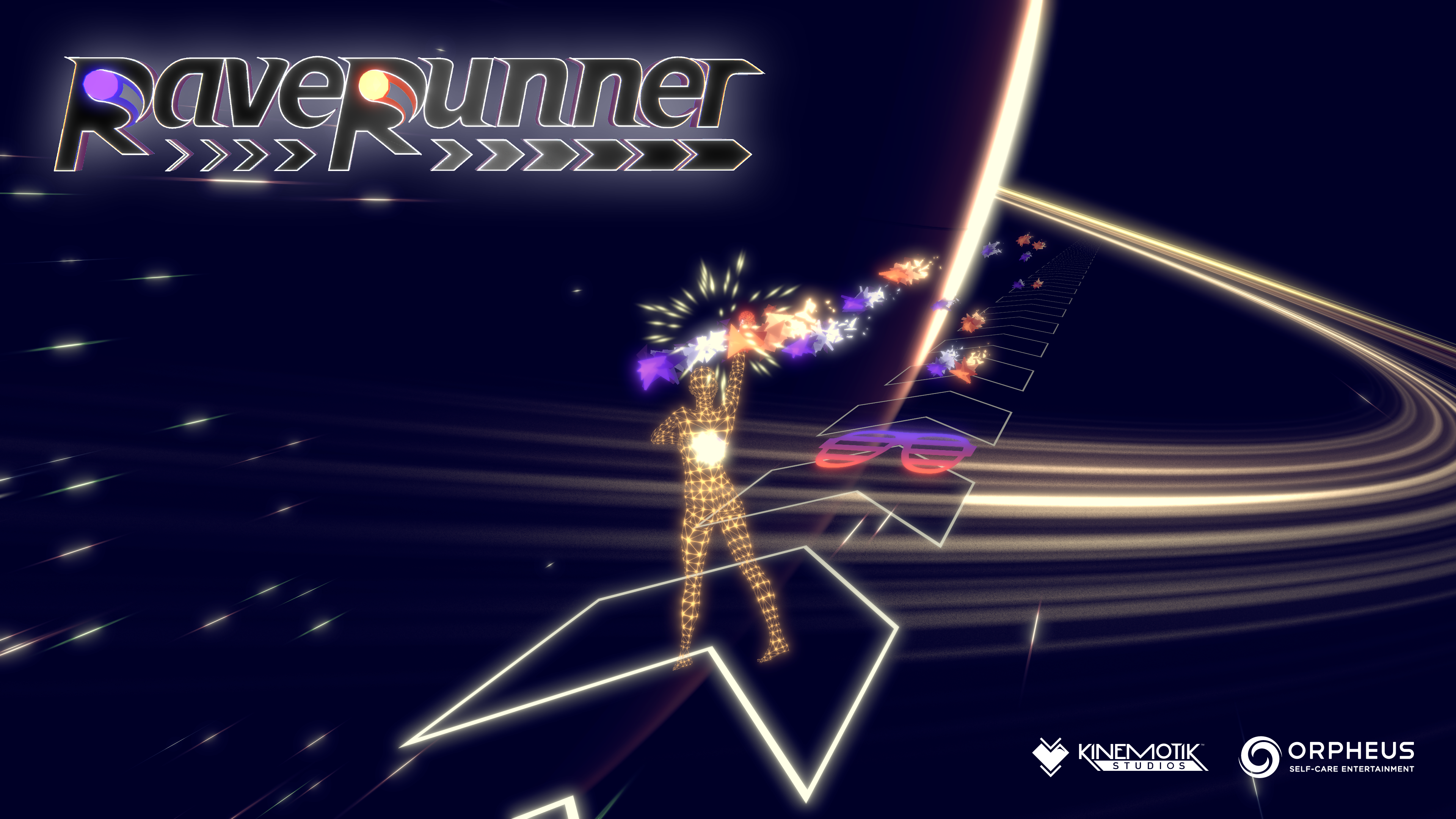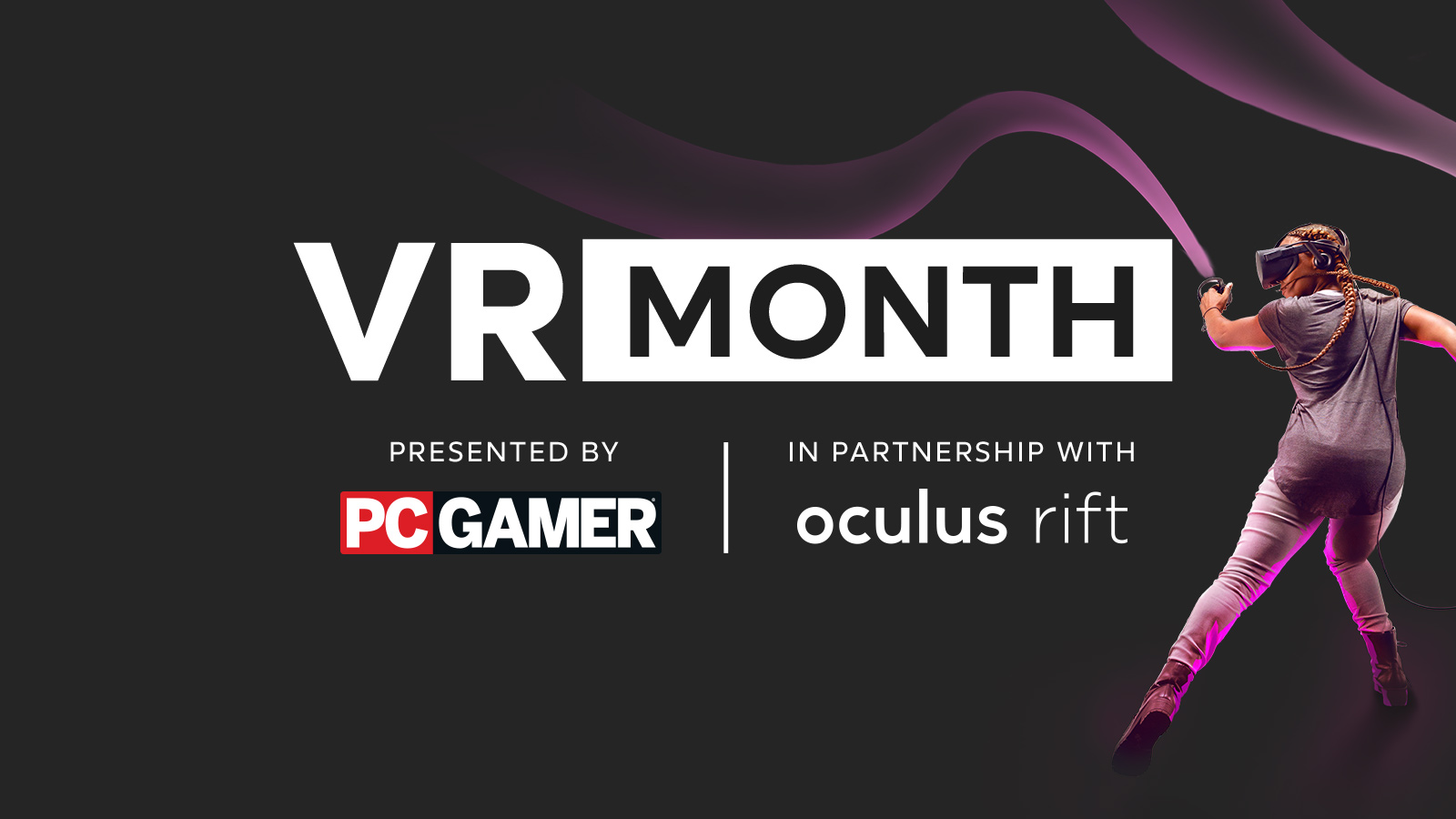Orpheus Entertainment wants to use VR to make you a happier person
Meet the publisher devoted to virtual reality as self-care.

In 2017 we interviewed games industry professional Job Stauffer about how he'd lost over 50 pounds thanks to VR by playing the rhythm game Soundboxing every day. It was an inspiring story, one that focused on the way virtual reality can provide a motivational boost to make regular exercise part of your routine. But for Stauffer there was more to it than just weight loss. He saw benefits to his mental well-being as well as his physical fitness.
"People looked at me and saw 'Wow, weight loss!' but I don't want to be just known for that," he explains. "It's not about the way you look, it's about the way you feel, and I felt great. I felt amazing. I started to feel less anxiety and less depression. I started to feel like I was more in control of myself, and videogames were doing that for me."
That realization led Stauffer to form Orpheus Self-Care Entertainment. One of the games being developed under the Orpheus umbrella is Rave Runner, which like Soundboxing is designed to get players up and moving. You dodge semicircles and wave the controllers around in time with music while zooming down an endless road, exercise made fun. But Stauffer wants to lift the profile of games that could help people mentally and emotionally as well as physically. It goes back to his experiences in parts of the games industry that don't care about people—even employees. He'd worked at Telltale and before that Rockstar, two environments which he describes as "incredibly fast-paced and incredibly high stress."
During his tenure as head of communications at Telltale, Stauffer started experiencing headaches so bad he had to have an MRI scan before being allowed to fly to Gamescom to help promote Batman: The Telltale Series. "That was a huge low point for me," he says. "I was massively overweight but also frankly massively depressed and anxious because I was working so much. I was told 'you have to focus on yourself and take better care of yourself.' Yes, that might mean exercise, but at the same time that means a lot of internal work and development and growth to learn how to undo the workaholism."
And while the games industry was responsible for his problems, it was games that provided a solution. After Soundboxing helped him get fit, he kept an eye out for other VR projects that could be transformative in similar ways, and that's how he met Robin Arnott, "this eccentric weirdo who was showing off a game with a microphone and what looked like a psychedelic meditation trip." That game was SoundSelf, one of the first to be brought under the banner of Orpheus Self-Care.
SoundSelf is a meditation tool that takes any noise you make—talking, whistling, singing, reciting a mantra, just saying "wow" a lot—and turns it into visuals, swirling patterns that surround you and coruscate off into the distance. Wired called it "a VR acid trip without the drugs and flashbacks." Stauffer calls it "a wonderful, beautiful ecstatic experience unlike anything else. Take time for yourself. What other game is telling you to do that?"

VR has a reputation for being isolating, an activity that cuts players off from reality even more than videogames normally do—think of every editorial cartoon of someone lolling in a chair surrounded by junk food and neglected family members with a pair of goggles on. Stauffer doesn't see VR as an isolating activity, and tells the story of the time they were showing SoundSelf at a con when Reggie Watts ("a beatboxer/comedian/actor and just a hero of mine" as Stauffer puts it) walked up to try it out.
Keep up to date with the most important stories and the best deals, as picked by the PC Gamer team.
"He was super enthused and super stoked and just loved everything we were doing," Stauffer gushes. Watts climbed into the SoundSelf set-up and beatboxed through the experience. When he came out, he told Stauffer that he'd found it inspirational, and could see uses for it when jamming or even as part of live performance. "The idea that your meditation and your deep self can be something you present to the world," Stauffer says, "you can have this convergence of isolation and a social experience at the same time. You're focused on your meditation in VR but at the same time people get to join in on that meditation and observe you, and observe what you're bringing into it."
SoundSelf has been a hit at parties, displayed on a projection dome so that viewers outside one of the best VR headsets can see what's going on. The other two projects Orpheus is working on will both be social thanks to multiplayer modes, though the specifics of those are still under wraps. Those two projects are Rave Runner and Microdose VR. The latter is "made of the same cloth" as SoundSelf, a psychedelic creative act, but one that involves using your entire body to draw in 3D. Stauffer describes his first time with it as "this flow state-inducing experience that just inspired me to move my body and create this dynamic living art with myself where I thought I was a living piece of art and music. It was absolutely unreal. It was actually made in Unreal!"

Rave Runner is the most traditional game of the three Orpheus projects, a rhythm game of the type that's become popular in VR, like Audioshield, Soundboxing, or Beat Saber—the kind of game that feels like you're standing on the neck of a guitar in Guitar Hero, swinging at colored objects in time with the music. Watching people play Rave Runner, they often perform little flourishes between beats or start to bop as they play, nodding their head or bouncing on their feet in ways the game doesn't require but doesn't punish either. They start to dance.
Though it's still in development, like all three of these projects, Stauffer's been testing Rave Runner by working it into his daily VR fitness routine. Like Soundboxing, it's made him feel good as well as work up a sweat, doing that serotonin thing exercise does. But he tells another story about it, one that I like more than anything about a runner's high or flow state or being part of a paradigm shift for gaming. (Stauffer says "paradigm shift" a lot.)
This year, Stauffer and the team he's put together at Orpheus went to a retreat together, and one of the events they signed up for was an 'ecstatic dance' night. He was dubious about it. "When I walked in the door I was so nervous because I thought, 'Oh man, I can't dance.' Then I see them and everyone's basically just playing Rave Runner but without visors on. And I was like, 'Let's do this!' and I hit the floor."

There are plenty of gifs of people looking like dorks in VR helmets, because being immersed in another reality gives people the confidence (or obliviousness) to risk looking like a dork. It's nice to know that there's a value in that beyond compilation videos of people tripping over their couches.
"That's why we thought of Orpheus as self-care entertainment," Stauffer says, "a genuine fully embodied extension of yourself breathing and moving and sweating and burning calories. Being a part of the experience in virtual reality, it changes you. You're not just leveling up an avatar, you're leveling up yourself."

Jody's first computer was a Commodore 64, so he remembers having to use a code wheel to play Pool of Radiance. A former music journalist who interviewed everyone from Giorgio Moroder to Trent Reznor, Jody also co-hosted Australia's first radio show about videogames, Zed Games. He's written for Rock Paper Shotgun, The Big Issue, GamesRadar, Zam, Glixel, Five Out of Ten Magazine, and Playboy.com, whose cheques with the bunny logo made for fun conversations at the bank. Jody's first article for PC Gamer was about the audio of Alien Isolation, published in 2015, and since then he's written about why Silent Hill belongs on PC, why Recettear: An Item Shop's Tale is the best fantasy shopkeeper tycoon game, and how weird Lost Ark can get. Jody edited PC Gamer Indie from 2017 to 2018, and he eventually lived up to his promise to play every Warhammer videogame.


